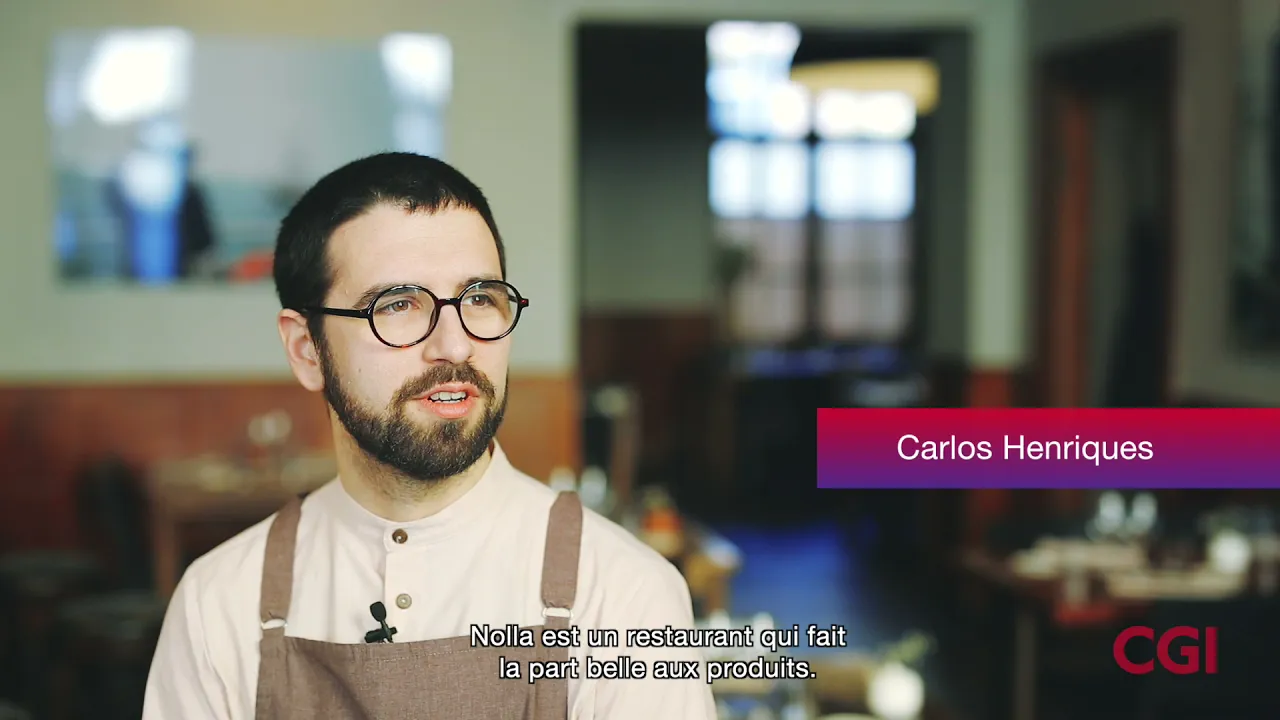To play this video, enable Statistics cookies. Google/YouTube may process your data – Learn more.
Optimising the quality, quantity and pricing of food products is a key challenge—and opportunity—for food service providers across the globe, along with reducing food waste and CO2-emissions. In the face of these challenges, their ultimate goal is to deliver food products customers want—when and how they want them.
CGI Aromi is an intelligent solution that advances the delivery of food services in the catering, health and retail sectors by streamlining operations and taking advantage of real-time data. CGI Aromi supports the entire food service delivery life cycle—from designing menus to serving meals to invoicing. It analyses and responds to constantly changing customer, environmental, regulatory and financial requirements, enabling food service providers to focus more attention on food service management and development.
Catering
Centralised planning saves
resources and guarantees quality
Retail
Effective for recipe
design and communication
Healthcare
Nutritious, safe and
delicious meals for patients
Benefits
- Quality and cost efficiency
-
Aromi’s smart, centralised management model provides flexibility for independent locations, while delivering the benefits of centralised planning, including high quality and cost-efficiency. The model automates manual tasks throughout the entire end-to-end food service life cycle, streamlines reporting and supports data-driven decision-making.
- Improved diner experience
-
Nutritional, allergy and other dietary factors can be applied easily in designing recipes with Aromi. In addition, accurate and real-time information on nutritional facts and meal ingredients can be communicated to diners via modern channels, ensuring food safety and transparency.
- Sustainability
-
Aromi helps food service providers minimise CO2 emissions at all stages of food service production by forecasting consumption to control food waste and supporting the use of ecological products in recipe design.
Aromi’s smart, centralised management model provides flexibility for independent locations, while delivering the benefits of centralised planning, including high quality and cost-efficiency. The model automates manual tasks throughout the entire end-to-end food service life cycle, streamlines reporting and supports data-driven decision-making.
Nutritional, allergy and other dietary factors can be applied easily in designing recipes with Aromi. In addition, accurate and real-time information on nutritional facts and meal ingredients can be communicated to diners via modern channels, ensuring food safety and transparency.
Aromi helps food service providers minimise CO2 emissions at all stages of food service production by forecasting consumption to control food waste and supporting the use of ecological products in recipe design.
Features
- Recipe and menu design
-
Recipes and menus are developed using precise ingredient, nutrition, allergy, seasonal and cost data, which is updated automatically from integrated product data banks. With this data, recipes and menus are designed to comply with specific service criteria such as nutritional recommendations or special dietary needs, removing the stress of managing large food service portfolios.
-
Meal and product ordering
-
Aromi’s customer-based webshop interface enables convenient ordering of food products and services from different outlets. Order information, including last minute changes, is automatically delivered to the preparing kitchen and invoicing systems. Handling product and service orders is flexible and reliable.
- Ingredient purchasing
-
Aromi enables the effective purchasing and receipt of food products, digitalizing procurement processes and integrating them with other related systems, such as invoicing. It also checks delivered purchases for quality, quantity and price.
- Food production
-
Aromi manages all processes related to food production, including production planning and execution, distribution and storage, and customer group and seasonal planning, while also minimising waste through historical waste information and pre-ordering. It also ensures quality and cost-efficiency through optimised equipment and personnel scheduling. Centralised planning helps produce menus for individual locations and all details from orders, including special diets, are aggregated into a single weekly dashboard.
- Delivery and consumption
-
Aromi manages the process for distributing meals to separate locations. Diners can view an online menu to see in advance what kind of meal they will enjoy.
- Food waste management
-
Food service operators can effectively manage their accumulated food waste based on real-time data. This helps not only to reduce food waste and costs, but also CO2 emissions








